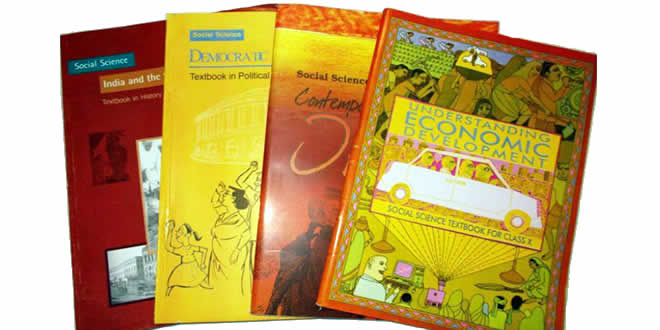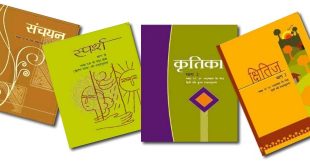10th Class CBSE Social Science Board Exam 2024: February 2024 – time duration 03 hours with maximum marks 80.
Note:
- Please check that this question paper contains 21 printed pages + 1 Map.
- Please check that this question paper contains 37 questions.
- Q.P. Code given on the right hand side of the question paper should be written on the title page of the answer-book by the candidate.
- Please write down the Serial Number of the question in the answer-book before attempting it.
- 15 minutes of time has been allotted to read this question paper. The question paper will be distributed at 10.15 a.m. From 10.15 a.m. to 10.30 a.m., the students will read the question paper only and will not write any answer on the answer-book during this period.
| School Name: | New Delhi 110085 India |
| Class: | 10th Standard (CBSE) |
| Subject: | Social Science Standard |
| Time Duration: | 03 Hours |
| Maximum Marks: | 80 |
| Date: | ~ February 2024 |
General Instructions: Read the following instructions carefully and follow them:
- This question paper contains 37 questions. All questions are compulsory.
- Question paper is divided into SIX sections — Section A, B, C, D, E and F.
- Section A – question number 1 to 20 are multiple choice type questions. Each question carries a 1 mark.
- Section B – question number 21 to 24 are Very Short Answer type questions. Each question carries 2 marks. Answers to these questions should not exceed 40 words.
- Section C – question number 25 to 29 are Short Answer type questions. Each question carries 3 marks. Answers to these questions should not exceed 60 words.
- Section D – question number 30 to 33 are Long Answer (LA) type questions. Each question carries 5 marks. Answers to these questions should not exceed 120 words.
- Section E – question number 34 to 36 are Case-based / Source-based questions with three sub-questions. Each question carries 4 marks.
- In Section F – question number 37 is a Map skill based question with two parts 37(i) History (2 marks) and 37(ii) Geography (3 marks). This question carries a total of 5 marks.
- In addition to this, NOTE that a separate question has been provided for Visually Impaired candidates in lieu of questions having visual inputs, Map etc. Such questions are to be attempted by Visually Impaired candidates only.
Section A:
Multiple Choice Questions (20 x 1 = 20)
Question 01. Match the Column I with Column II and choose the correct option:
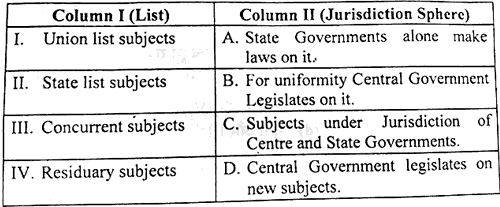
I II III IV
- A B C D
- C D A B
- D C B A
- B A C D
Question 02. Read the given statements:
- India has no official religion.
- All the communities have freedom to profess and practice any religion in India.
Which one of the following constitutional terms is used for the above statements?
- Republic
- Secular
- Sovereign
- Socialist
Question 03. Which of the following terms refers to the belief in and advocacy for the social, political and economic equality of women?
- Patriarchy
- Matriarchy
- Socialist
- Feminists
Question 04. Identify the soil with the help of following information.
- It develops in areas with high temperatures.
- It is the result of intense leaching due to heavy rain.
- Humus content is low.
Soil:
- Arid soil
- Yellow soil
- Laterite soil
- Black soil
Question 05. Read the given statements and choose the correct option with regard to the Rabi cropping season from the following:
- Rabi crops are sown in winter.
- Sown from October to December and harvested from April to June.
- Important crops are Maize, Cotton, Jute.
- Punjab, Haryana, Uttar Pradesh are important for the production of wheat.
Options:
- I, III and IV
- II, III and IV
- I, II and IV
- I, II and Ill
Question 06. Choose the correctly matched pair.
- Ferrous – Natural Gas
- Non-Ferrous – Nickel
- Non-Metallic Minerals – Limestone
- Energy Minerals – Cobalt
Question 07. Which one of the following pairs regarding Indian nationalism is correctly matched?
Question 08. Arrange the following events in chronological order and choose the correct option from the following:
- Treaty of Constantinople
- Defeat of Napoleon
- Unification of Italy
- Unification of Germany
Options:
- I, II, IV and Ill
- Il, IIl, l and IV
- II, I, IV and Ill
- IV, I, Il and III
Question 09. Two statements are given below. They are Assertion (A) and Reason (R).
Read both the statements and choose the correct option:
Assertion (A): The most serious source of nationalist tension in Europe after 1871 was Balkan.
Reason (R): A large part of the Balkan was under the control of the Ottoman Empire.
Options :
- Both, (A) and (R) are true and (R) is the correct explanation of (A).
- Both, (A) and (R) are true but (R) is not the correct explanation of (A).
- (A) is true but (R) is false.
- (A) is false but (R) is true.
Question 10. From which of the following countries Giuseppe Garibaldi belonged to:
- Austria
- Italy
- Greece
- Spain
Question 11. Look at the given picture carefully and infer the income of the bank.
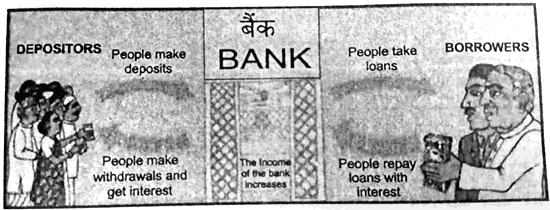
- The difference between the amount deposited and borrowed by the bank to the Reserve Bank of India.
- The difference of interest between what is charged from borrowers and what is paid to depositors.
- The difference of interest rate between what is charged from borrowers and what is charged from depositors.
- The difference between the amount deposited by the depositor and borrowed by the borrower.
Note: The following question is for Visually Impaired Candidates only in lieu of Q. No. 11.
Which one of the following supervises the functioning of formal sources of loan in India?
- Reserve Bank of India
- State Bank of India
- National Development Council
- National Finance Commission
Question 12. Why do lenders often require collateral before lending a loan ? Choose the most suitable option from the following.
- To lower interest rates for borrowers.
- To establish personal relations.
- To increase their profit margins.
- To mitigate the risk of loan default.
Question 13. Which of the following are developmental goals of a prosperous farmer?
Choose the correct from the given options.
I. Better wages
Il. Higher support prices for crops.
Ill. Assured high family income.
IV. More days for work.
Options:
- Only I and II are correct.
- Only II and IV are correct.
- Only II and III are correct.
- Only I and IV are correct.
Question 14. Which one of the following is an example of organized sector activities?
- A farmer irrigating his field.
- A handloom weaver working in her house.
- A headload worker carrying cement.
- A teacher taking classes in a government school.
Question 15. Choose the correct option to fill the blank.
Removing barriers or restrictions on business and trade set by the government is called __________.
- Disinvestment
- Special Economic Zones
- Liberalisation
- Foreign Direct Investment
Question 16. Which one of the following indices is given priority by the World Bank with respect to development?
- Infant Mortality Rate
- Equality
- Body Mass Index
- Per Capita Income
Question 17. Suppose, the monthly income of the family members is as follows respectively:
- Mother – Rs. 50,000/-
- Father – Rs. 40,000/-
- Son – Rs. 20,000/-
- Daughter – Rs. 20,000/-
The average income of the family would be:
- Rs. 32,000/-
- Rs. 30,000/-
- Rs. 32,500/-
- Rs. 33,000/-
Question 18. What role do ‘checks and balances’ play in a democratic country?
Choose the most suitable option from the following.
- To establish a direct form of government without representatives.
- To create a separation of powers to prevent authoritarianism.
- To prevent any change to the Constitution.
- To ensure absolute power for one branch of government.
Question 19. Which one of the following countries has two-party system?
- China
- United Kingdom
- India
- Pakistan
Question 20. Which of the following was the primary objective of Belgium to form a separate government in Brussels?
- Promoting cultural events.
- Managing international relations.
- Enforcing local laws.
- Ensuring linguistic accommodation.
Section B:
Very Short Answer Type Questions (4 x 2 = 8)
Question 21.
(A) Suggest any two measures for the conservation of forest.
OR
(B) Suggest any two measures for the conservation of wildlife.
Question 22.
“The Silk Route was a good example of vibrant pre-modern trade and cultural links between distant parts of the world.” Explain the statement with any two examples.
Question 23. Explain the prudential reasons of Power sharing.
Question 24. Differentiate between primary and secondary sectors of the economy. 2
Section C:
Short Answer Type Questions (5 x 3 = 15)
Question 25.
(A) Describe any three causes that led to the Non- Cooperation Movement.
(B) Describe any three causes of Civil Disobedience Movement.
Question 26. Suggest any three ways to protect fresh water from industrial pollution.
Question 27. Explain any three challenges that political parties often face in their functioning.
Question 28.
“Self-help-groups (SHGs) in rural society serve as an empowering platform towards socio-economic development.” Give arguments in support of your answer.
Question 29. How is the issue of sustainability important for development? Explain.
Section D:
Long Answer Type Questions (4 x 5 = 20)
Question 30.
(A) How did the ideology of ‘liberalism’ affect Europe in the early nineteenth century ? Explain. 3
(B) Explain the process of formation of ‘United Kingdom of Great Britain’. 5
Question 31.
(A) Analyze the advantages of Natural Gas as a source of energy. 5
(B) minerals generally occur in different rocks. examine the statement. 5
Question 32.
(A) Analyse any five values of democracy. 5
(B) “The passion for respect and freedom are the basis of democracy.” Justify the statement. 5
Question 33.
(A) “Globalisation is the process of rapid integration or interconnection between countries.” Explain the statement with examples. 5
(B) “Improvement in technology has stimulated the globalisation process.” Explain the statement with examples. 5
Section E:
Case-based / Source-based Questions (3 x 4 = 12)
Question 34. Read the following source carefully and answer the questions that follow:
FLOODS
Basic safety Precautions To Be Taken:
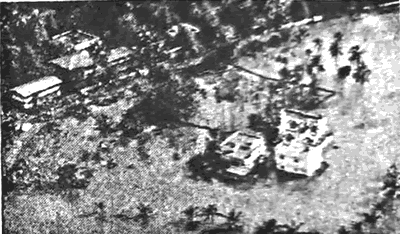
- Listen to radio / TV for the latest weather bulletins and flood warnings. Pass on the information to others.
- Make a family emergency kit which should include; a portable radio / transistor, torch, spare batteries, a first aid box along with essential medicines, ORS, dry food items, drinking water, matchboxes, candles and other essential items.
- Keep hurricane lamps, ropes, rubber tubes, umbrellas and bamboo sticks in your house. These could be useful.
- Keep your cash, jewelry, valuables, important-documents-etc. in a safe place.
- If there is a flood, move along with your family members and cattle to safe areas like relief camps, evacuation centers, and elevated grounds where you can take shelter.
- Turn off power and gas connections before leaving your house.
During floods:
- Don’t enter into flood waters; it could be dangerous.
- Don’t allow children to play in or near flood waters.
- Stay away from sewerage lines, gutters, drains, culverts etc.
- Be careful of snakes; snakebites are common during floods.
- Stay away from electric poles and fallen power-lines to avoid electrocution.
- Don’t use wet electrical appliances-get them checked before use.
- Eat freshly cooked and dry food. Always keep your food covered.
- Use boiled and filtered drinking water.
- Keep all drains, gutters near your house clean.
- Stagnation of water can breed vector / water borne diseases. In case of sickness, seek medical assistance.
- Use bleaching powder and lime to disinfect the Surroundings.
34.1 Mention any two essential items that should be included in a ‘family emergency kit’.
34.2 Why are the items of the family emergency kit important during flood situations?
34.3 In case of a flood, what are the recommended actions to ensure the safety of your family and belongings? Describe any two.
Question 35. Read the following source carefully and answer the questions that follow:
LOCAL GOVERNMENT
This new system of local government is the largest experiment in democracy conducted anywhere in the world. There are now about 36 lakh elected representatives in the panchayats and municipalities etc., all over the country. This number is bigger than the population of many countries in the world. Constitutional status for local government has helped to deepen democracy in our country. It has also increased women’s representation and voice in our democracy. At the same time, there are many difficulties. While elections are held regularly and enthusiastically, gram sabhas are not held regularly. Most state governments have not transferred significant powers to the local governments. Nor have they given adequate resources. We are thus still a long way from realising the ideal of self-government.
35.1 Analyse the significance of the elected representatives in the Panchayats.
35.2 In what way has the representation of women in democracy influenced by Constitutional status for local government?
35.3 What has been the impact of granting Constitutional status to local government on the democratic landscape of the country? Analyse.
Question 36. Read the following·source carefully and answer the questions that follow:
Printed Words
This is how Mercier describes the impact of the printed word, and the power of reading in one of his books:
‘Anyone who had seen me reading would have compared me to a man dying of thirst who was gulping down some fresh, pure water…. Lighting my lamp with extraordinary caution, I threw myself hungrily into the reading. An easy eloquence, effortless and animated, carried me from one page to the next without my noticing it. A clock struck off the hours in the silence of the shadows, and I heard nothing. My lamp began to run out of oil and produced only a pale light, but still I read on. I could not even take out time to raise the wick for fear of interrupting my pleasure. How those new ideas rushed into my brain! How my intelligence adopted them!’
36.1 How does the passage reflect the immersive nature of reading Mercier?
36.2 Why did Mercier describe himself as a virtual writer?
36.3 How did reading influence Mercier’s intellectual capacity and his engagement with new concepts? Explain any two points.
Section F:
Map Skill Based Questions (2 + 3 = 5)
Question 37.
- Two places ‘A’ and ‘B’ have been marked on the given Political outline map of India. Identify them with the help of the following information and write their correct names on the lines drawn near them:
(a) The place where Mahatma Gandhi broke the salt law.
(b) The place where the Session of Indian National Congress was held in 1927. - On the same Political outline map of India, locate and label any three of the following with suitable symbols:
(a) Hirakud – Dam
(b) Mumbai – Software Technology Park
(c) Raja Sansi – International Airport
(d) Naraura – Nuclear Power Plant
Note: The following questions are for the Visually Impaired Candidates only, in lieu of Q. No. 37.
Answer any five questions:
- Name the place where Mahatma Gandhi broke salt law.
- Name the place where the Indian National Congress Session was held in 1927.
- Name the state where Hirakud dam is located.
- Name the state where Mumbai Software Technology Park is located.
- Name the state where Raja Sansi International Airport is located.
- Name the state where Naraura Nuclear Power Plant is located.
 Class Notes NCERT Solutions for CBSE Students
Class Notes NCERT Solutions for CBSE Students
